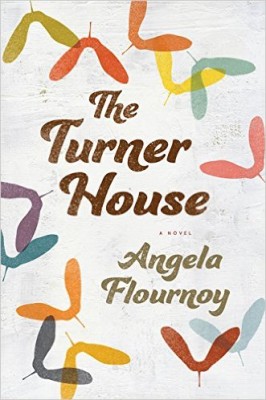
I may be the only person in the world that didn’t adore this book. I mean, I liked it. I thought it was very good, especially for a debut. But it didn’t grab me by the throat and declare its understated majesty or anything. I picked it up, I read it, I admired it, I put it down again. I went on with my life.
Part of the problem may be that the title is so, so boring. Broadly speaking, I think it’s a cop-out to use the name of a character in the title of a book, and an author who does it will often have to work twice as hard to get me to pay attention. Charlotte Bronte (Jane Eyre), Austen (Emma), Flaubert (Madame Bovary), and Dostoyevsky (Anna Karenina) are all guilty of it, and don’t even get me started on Dickens (David Copperfield, Nicholas Nickleby, and Barnaby Rudge, off the top of my head). I give Wodehouse a free pass for some reason because Jeeves in the context of a title feels less like a character and more like a manifestation of the collective unconscious; but I put off reading Villette for ages before I realised it was the name of a town, not a person (though that’s almost as bad).
It’s not fair of me not to love this book, because honestly, it’s like someone put everything I like about Anne Tyler into a pot, added some racial diversity, gave it a gentle stir, and poured it out into a new landscape (pre-Obama, post-auto-industry-decline Detroit). The family at the centre of the story comprises thirteen children descended from a still-living matriarch, who re-mortgaged her home at a time when it was still worth money. Needless to say, her children have now discovered that the value of the mortgage far exceeds the value of the house (which as someone who had to borrow nearly half a million dollars to buy a house in Sydney is basically my deepest fear). The novel focusses on three of the children, plus some other satellite characters. The oldest, Charles (Cha-Cha), is the responsible one, taking care of his mother and organising his siblings, while also seeing a therapist to discuss his belief that he sees a ghost and not-discuss the fact that he’s fantasising about an affair with her (the therapist). The youngest, Lelah, is a gambling addict who has lost her job and is in a tense relationship with her own daughter. We also meet the youngest boy, Troy, a police officer who schemes about ways to “short-sell” the house in order to keep it in the family without paying off the mortgage.
Everything works in this novel. The characters are fully-formed and complex, and their relationships with each other are dynamic and full of the expected sibling tensions. The portrait it paints of Detroit shows a city that the main characters (not to mention the author) obviously love, despite the fact that it’s falling apart around them; there’s a wonderful scene where some of the siblings arrive at the family home to find that, overnight, someone has stolen the garage for scrap metal. There are a couple of conversations about what exactly is “wrong” with the city – corruption, historical racial tensions, etc – that feel a little scripted, but it was definitely necessary to put something in there, so it’s hard to fault Flournoy for that. The themes of inheritance and belonging are subtly but deftly woven through, the possibility of an Obama presidency gives the necessary note of hope, and the whole thing comes off with rarely a hitch. I could have asked for the ending to wrap up a few more threads, I guess.
So what’s my problem? I suspect it is my problem, and not the book’s, which has done everything right and which is, as I said, objectively very good. If a complex but ultimately optimistic African-American family drama set in the suburban decay of Detroit sounds like something you’d enjoy, you’d be hard-pressed to find a better example than this.
Trigger warnings: gambling addiction, drug addiction, alcoholism.